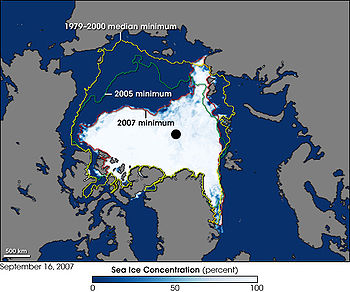The global warming controversy is a dispute regarding the nature, causes, and consequences of global warming. The disputed issues include the causes of increased global average air temperature, especially since the mid-20th century, whether this warming trend is unprecedented or within normal climatic variations, and whether the increase is wholly or partially an artifact of poor measurements. Additional disputes concern estimates of climate sensitivity, predictions of additional warming, what the consequences are, and what action should be taken (if any). The debate is vigorous in the popular media and on a policy level, with individuals, corporations, and political organizations all being involved.

Climate models are systems of differential equations based on the basic laws of physics, fluid motion, and chemistry. To “run” a model, scientists divide the planet into a 3-dimensional grid, apply the basic equations, and evaluate the results. The atmospheric component of the model calculates winds, heat transfer, radiation, relative humidity, surface hydrology, and surface fluxes of heat and moisture within each grid and evaluates interactions with neighboring points. The ocean component calculates currents, heat content and salinity. The atmospheric and oceanic components interact, for example with evaporation from the oceans into the atmosphere and with atmospheric winds affecting ocean currents. Different models vary in such basics as grid size and therefore do not give the same results.
Arctic Sea ice as of 2007 compared to 2005 and also compared to 1979-2000 average

Antarctic Skin Temperature Trends between 1981 and
2007, based on thermal infrared observations made
by a series of NOAA satellite sensors. Skin temperature
trends do not necessarily reflect air temperature trends
Source From : www.wikipedia.org


Tidak ada komentar:
Posting Komentar